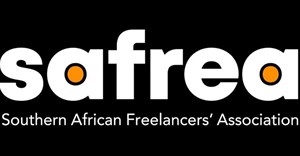
Subscribe & Follow
Jobs
- Junior/Mid-Level Video Editor Johannesburg
- Personal Assistant and Project Coordinator to CEO Cape Town
- SEO and Content Creator Intern Cape Town
- Media - Sales Manager - Digital or Broadcasting Exp Essential or Both Johannesburg
- Head of Performance Marketing South Africa
- Journalist Intern Johannesburg
Freelancing: What you need to know

Somewhere, early within my 24-year career, I vividly remember working as a sales rep and I told myself at the time of leaving the company that I will never again work for commission. I recall sitting behind my desk making cold calls to reach a target of 10 new business meetings per week to reach a specific sales target at the end of the month.
I remember spending countless hours in traffic, driving to and from prospective client meetings, working after hours to get proposals drafted and submitted, and numerous follow up calls in attempts to close deals. The competition within the sales team was tough and not knowing what my exact income would be every month drove me to tears.
Fast forward a couple of years and here I am, working as a freelancer in the competitive world of marketing having to do all those things I said I would never do again. Is it an easy way to earn an income? No! Is it rewarding? Yes!
How to become a freelancer
A freelancer is self-employed and hired to work for different companies on particular assignments. To be able to call yourself a professional freelancer, therefore, means that you have no other income than what you generate from your projects – you do not work for a boss and you don't earn a fixed salary at the end of the month.
Anyone in any industry can choose to become a freelancer. According to US firm Moonlighting, some of the most popular freelance skills include marketing, blockchain, writing and editing, graphic design, web design, photography, accounting and virtual admin assistance.
Before you hand in your letter of resignation in pursuit of a freelance career there are a few things you need to do.
In my view, the most important thing is that you need a good reputation. Start building a reputation and portfolio in your area of expertise before you quit your full-time job. If you are a bookkeeper at a corporate and you are considering a freelance career in accounting, start moonlighting by offering tax return services within your local community. This is something you can do after work to build your reputation and client base.
I can also highly recommend that you join the South African Freelancers' Association (Safrea). The organisation offers different types of membership based on your annual billable income. This means that if you work full-time and earn less than 60% of your income through freelancing, you can still obtain membership.
What to expect from your freelance career
So, you've quit your job and forthwith call yourself a freelancer. If you think you can now sit and binge-watch your favourite TV series during the day and do some tax returns for your new client base after dinner, you have a big surprise waiting.
Taking a quick balcony moment between work.#freelance #freelancer #freelancelife pic.twitter.com/6qQIqWymhQ
— Elliott Bledsoe (@elliottbledsoe) July 13, 2019
Yes, freelancing offers you a degree of flexibility to do those things you never had the time for while working a nine-to-five job. But freelancing is hard work if you rely on it to put food on the table every day. Especially when you start at being your boss, you need to be vigilant of how you spend your time. You may find that you are working more hours as a freelancer than when you worked for a salary.
The most frustrating thing about being a freelancer is not knowing the future. You may have 30 clients for whom you are doing tax returns this month when tax return season opens, but what about the next month and the one thereafter? How do you sustain your income over 12 months?
You need to approach being a freelancer in the same way a salesperson approaches their job.
- Market yourself - utilise social media to create awareness for your services
- Build a database of potential customers – get a website where potential clients can sign up for a newsletter or utilise Facebook or LinkedIn for lead generation campaigns
- Develop a newsletter with content that is aimed at solving your potential client's problems and send it out regularly (once per quarter is often enough)
- Make cold calls to set up new-business meetings where you meet face-to-face with potential clients
- Ask for referrals – the financial services industry gets this right – after you consult with your financial advisor the chances are, they will ask you if you can think of two friends who may need help with their investments or insurance policies
- Find opportunities to network – trade shows and expos are always a good place to start. Not as an exhibitor, but as a visitor
- Set sales targets for yourself and vigilantly track those targets
- Join freelancer networking sites like NoSweat.work
Common freelancing pitfalls
Being a freelancer is not without its pitfalls. If you work from home, it can get lonely. It is also important to remember that, as a freelancer, you have no company benefits like Medical Aid, a pension fund or paid leave to go on vacation.
You are going to experience large swings in your income – some months are going to be busy and others quiet. Having the discipline to keep money aside is key to be a freelancer and tough to get right in today's economic climate.
And if you have never done any admin before, now is the time you are going to spend many nights doing paperwork! Keeping track of your expenses is important when it comes to your tax return at the end of the financial year. And that is only a small part of the admin you will need to take care of.
Freelancing can be a rewarding career
What makes freelancing rewarding? Everyone has their own set of motivators.
For me, freelancing allows me to work when I am most productive – 4am to 2pm. It provides me with a variety of assignments whereas before, I got bored quickly as an employee stuck in the same routine writing about the same old topic every day. As a freelancer, I have gained experience in a myriad of industries whereas a marketer in the corporate engineering industry is likely to remain in the same or very similar industry most of their career.
If you are considering a career in freelancing, find that which motivates you and make it work for you. With discipline, dedication and hard work, you can do it.






















